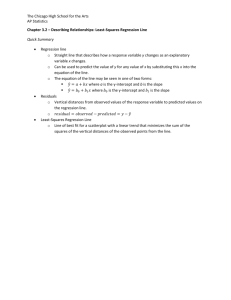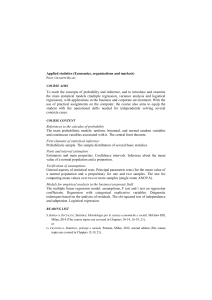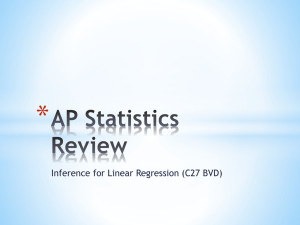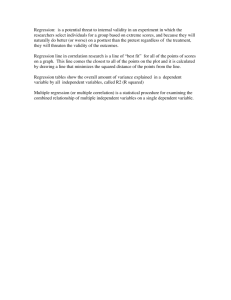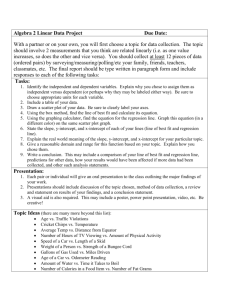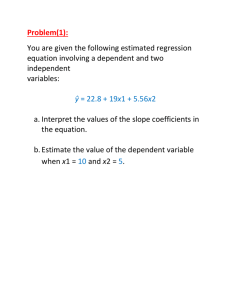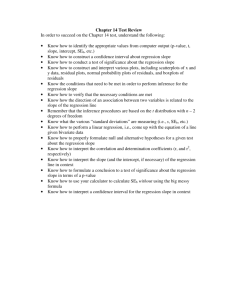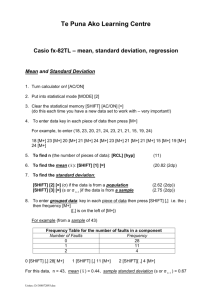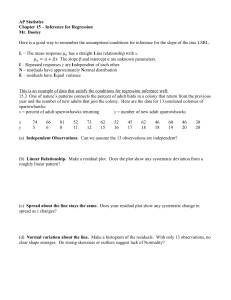Test 14A
advertisement
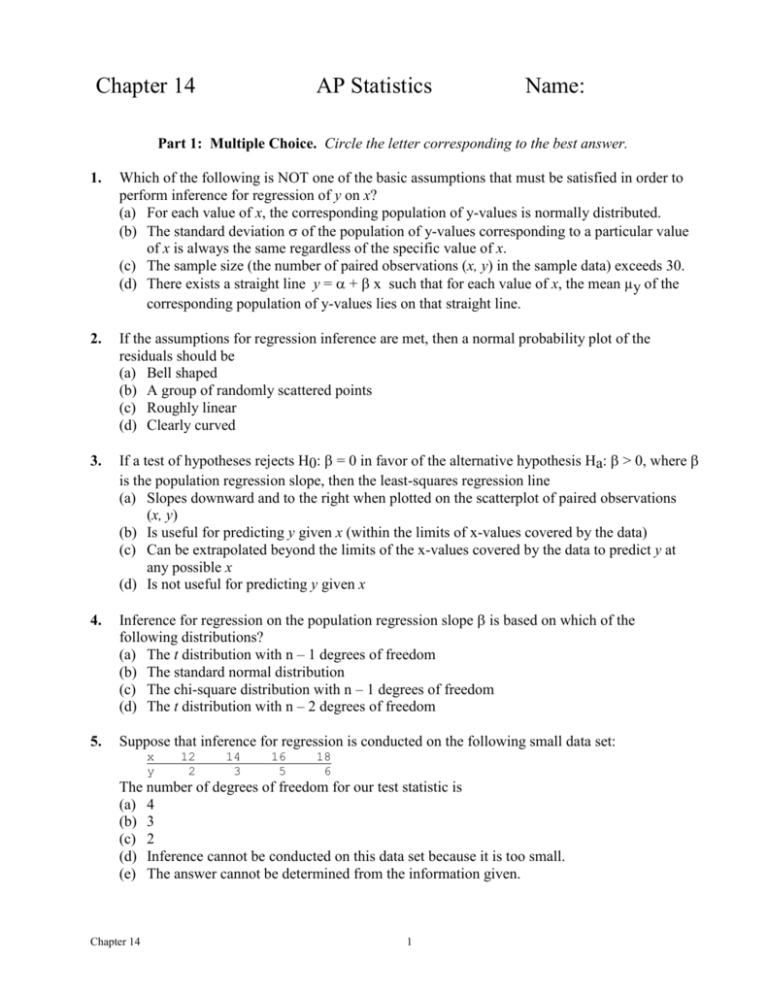
Chapter 14 AP Statistics Name: Part 1: Multiple Choice. Circle the letter corresponding to the best answer. 1. Which of the following is NOT one of the basic assumptions that must be satisfied in order to perform inference for regression of y on x? (a) For each value of x, the corresponding population of y-values is normally distributed. (b) The standard deviation of the population of y-values corresponding to a particular value of x is always the same regardless of the specific value of x. (c) The sample size (the number of paired observations (x, y) in the sample data) exceeds 30. (d) There exists a straight line y = + x such that for each value of x, the mean µy of the corresponding population of y-values lies on that straight line. 2. If the assumptions for regression inference are met, then a normal probability plot of the residuals should be (a) Bell shaped (b) A group of randomly scattered points (c) Roughly linear (d) Clearly curved 3. If a test of hypotheses rejects H0: = 0 in favor of the alternative hypothesis Ha: > 0, where is the population regression slope, then the least-squares regression line (a) Slopes downward and to the right when plotted on the scatterplot of paired observations (x, y) (b) Is useful for predicting y given x (within the limits of x-values covered by the data) (c) Can be extrapolated beyond the limits of the x-values covered by the data to predict y at any possible x (d) Is not useful for predicting y given x 4. Inference for regression on the population regression slope is based on which of the following distributions? (a) The t distribution with n – 1 degrees of freedom (b) The standard normal distribution (c) The chi-square distribution with n – 1 degrees of freedom (d) The t distribution with n – 2 degrees of freedom 5. Suppose that inference for regression is conducted on the following small data set: x y 12 2 14 3 16 5 18 6 The number of degrees of freedom for our test statistic is (a) 4 (b) 3 (c) 2 (d) Inference cannot be conducted on this data set because it is too small. (e) The answer cannot be determined from the information given. Chapter 14 1 6. In inference for regression, the statistic s represents (a) The estimate of the standard deviation s in the regression model (b) The standard deviation of the x-values in the paired observations (x, y) (c) The estimate of the y-intercept (d) The standard deviation of the y-values in the paired observations (x, y) Part 2: Free Response Answer completely, but be concise. Write sequentially and show all steps. A teacher asked her 8 introductory statistics students to record the total amount of time they spent studying for a particular test. The amounts of study time x (in hours) and the resulting test grades y are given below. x y 2 92 1 81 1.5 84 0.5 68 1 85 3 96 7. Make a scatterplot of the data. 8. Use your TI-83 to obtain the equation of the least-squares regression line and the correlation. 9. Explain in words what the slope of the true regression line says about hours studied and grade awarded. 0 48 2 74 10. What is the estimate of from the data? What is your estimate of the intercept of the true regression line? 11. Use your calculator to calculate the residuals. Report the sum of the residuals and the sum of the squares of the residuals. Then use these results to estimate the standard deviation in the regression model. Chapter 14 2 SEb = 12. The standard error of the slope SEb is defined as Calculate SEb. s (x – x) 2 13. Suppose we want to find out if the number of hours studied helps predict grade awarded on this statistics test. Formulate null and alternative hypotheses about the slope of the true regression line. State a two-sided alternative. 14. Determine the test statistic, the degrees of freedom, and the P-value of t against the alternative. 15. Would you reject the null hypothesis at the 1% significance level? Explain briefly. 16. Write your conclusions. 17. Compute a 95% confidence interval for the slope ß of the true regression line. Chapter 14 3
